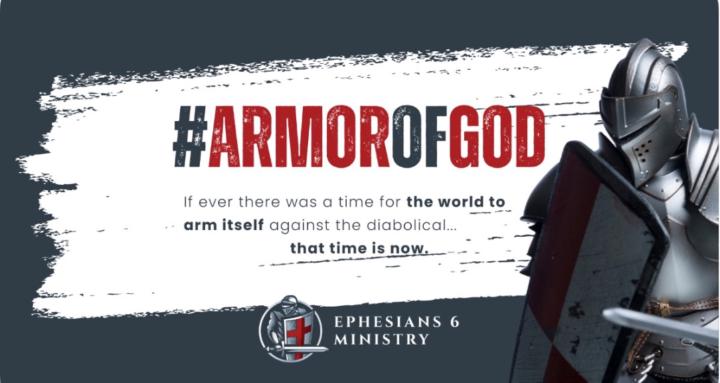
Write something
Baptism of Jesus in the Jordan
Today’s Gospel reminds us to let Jesus take the Lead. I’m not sure that we can, from this bird’s-eye view two thousand years later, fully appreciate the scene unfolding between Jesus and John the Baptist in the Jordan River. John is a man who always follows God’s prompting. In the desert he announces the coming of Christ. He tells his own disciples that he is not worthy even to untie Jesus’ sandals. And now he is asked to do the unthinkable—to baptize Jesus Himself. Then the heavens open, and the voice of the Father speaks: “This is my beloved Son. Listen to him.” Jesus deliberately takes the lower place. He steps into line with sinners. He identifies Himself with those who need repentance, in order to meet them exactly where they are. And only then does heaven reveal His glory and command the crowd to follow Him. This reveals a profound truth about the life of Jesus. We first saw Him in a manger, identifying with the lowly, and yet summoning kings, shepherds, and angels to worship His glory. Now He walks among sinners as one of them, not to remain there, but to show them the way to glory. Here is the lesson: the art of the Christian life — for each baptized Christian — is learning to let God take the lead. We become real disciples only when we learn how to follow the Lord. But if God is in the lead, then I am not—and that is where our resistance begins. We worry that if God’s plans are not our plans, then we will lose our freedom. What will become of us? What will life look like? We want a say in what happens to us and for us. So instead of listening, we try to take charge. We say, Bless my plans. Support my timing. Endorse my priorities. And yet St. Thomas Aquinas reminds us that grace does not destroy our freedom—it perfects it. God’s leadership does not diminish us; it heals us. If we are honest, we have been in charge for quite some time—and we are still broken, still discouraged, still struggling with sin and vice. We act as though handing our life over to God is like giving a teenager with a learner’s permit the keys to an expensive sports car. We hesitate. And yet every time we insist on control, every time we try to lead, we go astray anyway. We wander. We crash.
Faith XIII
Christ reveals the Father’s love as an Incarnate relationship with man. It is easy to spot in the order of the cosmos that there is some force, some agency bigger than you and me that sustains it all. Science – man’s study of the cosmos – depends upon this hierarchical structure, for without the dependence upon the general principles of order, we could never surmise or come to grips with things that reveal disorder, for disorder is the lack of order, natural or supernatural. When someone wants to make the argument to deny God’s existence because there is a perceived evil in the world, my response is this: The mere fact that we attribute “evil” in the world as a “disorder” at all presumes our adherence to something and someone that brings order about. If anything, the one who seeks to use evil as an argument against God’s existence actually presumes God’s created order in the world. And that order is apparent to anyone with eyes to see or ears to hear. Look around and you can see that God’s majestic Hand has created the cosmos, hear the birds’ call and understand that there is a divine plan written in the fabric of all things both great and small. All heaven and earth declare the glory of God. But, more to the point, what Jesus reveals in Himself is not the mere fact that God exists, rather Jesus’ own person reveals the nature of God’s goodness. For Jesus is the God-man, the One who left Heaven so that man could be found. Jesus reveals the LOVE that animates all creation, and Jesus took our humanity Himself so that He could refashion our broken hearts after His own! The great power of Jesus’ public ministry not only reestablishes man’s confidence in God’s presence among His people, but displays His own interior life for man to regain purchase in Divine Life. The Life of Jesus opens up for man the life between Father, Son, and Spirit, and admits us into His own life for the sake of our friendship with Him. This demonstrates once again the truth that God is forever faithful, despite man’s infidelity.
Faith Part XII
Part XII We need a savior, but we also need to know that we need Him. Perhaps the most difficult obstacle to faith is the obstinate insistence that we are “fine” as we are. Belief is hard because we are often deaf to God’s voice and blind to our own needs. Bishop Barron in one of his many speeches once remarked (as I can recall) that the whole of Jesus’ mission is the “great opening.” He was preaching on Mark’s gospel, chapter seven about the man who was both deaf and mute. He couldn’t hear the word of God nor make himself known. Jesus meets the man, touches his ears and tongue and cries out, “Ephphatha” – BE OPENED! The whole of Jesus’ ministry is this, to make us open to the divine life. Notice how fitting it is that our faith begins by hearing the faith proclaimed. God opens us so that we can hear the good news and receive it. The belief that we have a savior presupposes our need for Him. Jesus came to save the lost and the broken, but for us, here and now, our need for Jesus must come into full view. The profession we make is not new to the Judeo-Christian. The Jews began with a profession of faith that paved the way for the “I believe”, and it started with a proclamation, “Hear, O Israel”. The Shema is the proclamation of God’s goodness, what God has done for the people, which turns to an enjoinment against all other forms of worship. The Lord, the God of Israel, is God alone. He Alone cares for the people of Israel. He alone is the one who led Israel out of slavery and death to freedom and life. God alone is the savior of His people. The Israelites knew God through God’s saving action. The prophecies regarding Jesus in the Old Testament also speak of God’s saving power. Isaiah prophecies, “Hear now, O house of David! Is it a small thing for you to weary men, but will you weary my God also? 14 Therefore the Lord Himself will give you a sign: Behold, the virgin shall conceive and bear a Son, and shall call His name Immanuel.[b] 15 Curds and honey He shall eat, that He may know to refuse the evil and choose the good. 16 For before the Child shall know to refuse the evil and choose the good, the land that you dread will be forsaken by both her kings.” (Is. 7:13-16). See again, the message begins with “hear.”
6
0
1-30 of 32

skool.com/ephesians6ministry
Put on the Full Armor of God. Get Fit for the Kingdom! Strengthen your relationship with Jesus. Overcome habitual sins. Find community support!
Powered by






